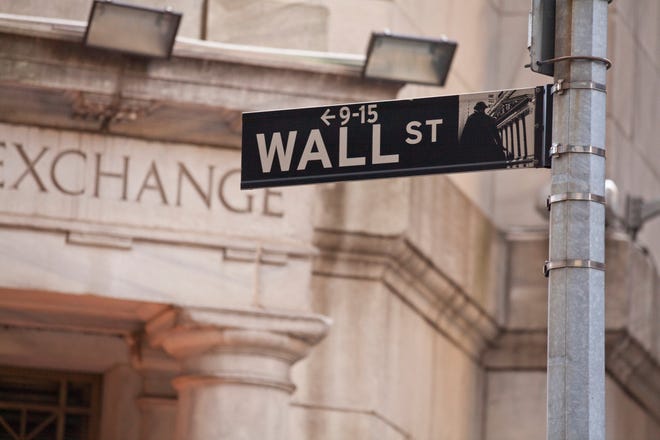
Damian J. Troise
NEW YORK — Stocks rose in morning trading on Wall Street Thursday as markets continue an unsteady search for direction amid more mixed news on company earnings.
The S&P 500 rose 0.8% as of 10:13 a.m. Eastern. The Dow Jones Industrial Average rose 339 points, or 0.1%, to 30,757 and the Nasdaq rose 1%.
Treasury yields edged further into multiyear highs, which has helped push up rates on mortgages and other loans. The yield on the 10-year Treasury climbed to 4.15 from 4.14% late Wednesday and is at its highest levels in 14 years. The yield on the two-year Treasury, which tends to track expectations for future Federal Reserve action, rose to 4.57% from 4.56%.
Earnings focus
Earnings have been the big focus for Wall Street all week as investors try to get a better picture of how companies are faring amid the hottest inflation in four decades and how they see the economy moving forward. The results have been mixed so far and several big companies have disappointed investors with weak or worrisome warnings.
Tesla fell 5.1% after saying it will miss its target for vehicle deliveries this year. Railroad Union Pacific slipped 3.6% after predicting slower growth, suggesting that the economy may be slowing down. CSX, which reports its results later Thursday, fell 0.5%. American Airlines fell 2% after reporting its latest results.
Technology stocks made strong gains. Microsoft rose 1.6%. Energy stocks gained ground as U.S. oil prices rose 2.7%. Chevron rose 1.7%.

Investors shrug off politics, eyes on economy
Markets in Europe were mostly higher. British Prime Minister Liz Truss resigned following financial market turmoil caused by multiple policy U-turns.
Investors remain concerned about inflation and the potential for recessions throughout world. Wall Street is particularly worried about the Fed’s ongoing plan to raise interest rates in order to slow economic growth and tame high prices. The U.S. economy is already showing signs of a slowdown and the Fed’s plan risks stalling the economy and causing a recession.
The employment market has remained a strong area of the economy, along with consumer spending. The latest government data showed that the number of Americans applying for unemployment benefits fell last week and remains historically low.






